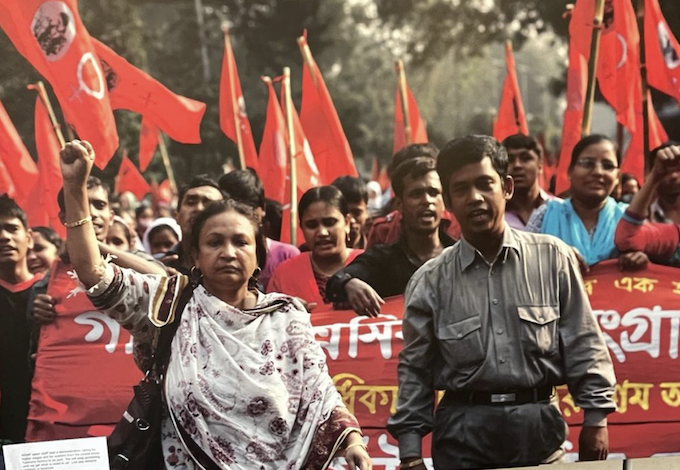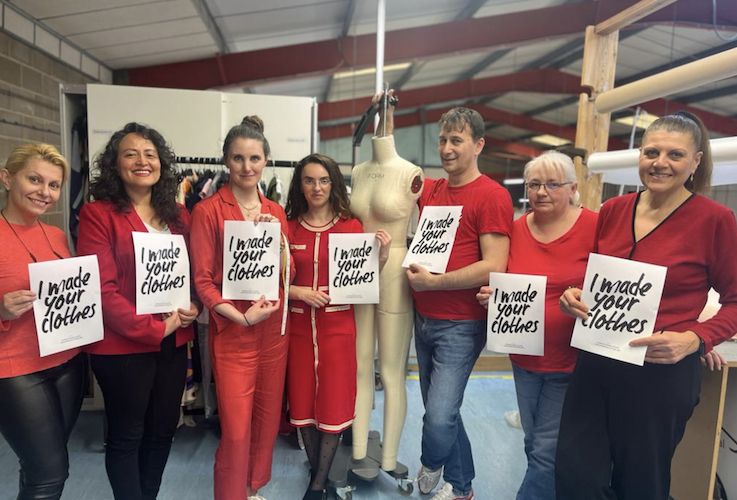27 Apr Supply Chain and Ethics: The Rana Plaza Disaster 10 Years On
On 26th April, during Fashion Revolution Week FEL’s CEO Jenny Holloway joined the ‘All-Party Parliamentary Group for Ethics & Sustainability in Fashion’ at the House of Commons to discuss ongoing issues and strategies for the apparel manufacturing industry, both in the UK and internationally.
The anniversary of the Rana Plaza disaster was also highlighted with a Photo Exhibition entitled, ‘Rana Plaza and the resistance, ten years on’, hosted by the All-Party Parliamentary Group and Labour behind The Label.

A decade ago the collapse of the Rana Plaza building in Bangladesh that killed 1,100 garment workers and injured more than 2,000, shone a negative spotlight on the fashion industry. In amongst the rubble were labels of well known high street brands profiteering on the back of unethical working conditions.
The disaster sparked Fashion Revolution, founded by Carry Somers and Orsola de Castro, to promote a global fashion activism movement, mobilising citizens, brands and policymakers through research, education and advocacy.
Brands and manufacturers were encouraged to join the International Accord on Health and Safety for the Textile and Garment Industry. The Accord is legally binding agreement between clothing brands and global unions that created an inspection and remediation programme to mitigate fire, building, electrical, and boiler safety risks for factory workers. The programme also includes a complaints mechanism for workers to file grievances about health and safety concerns.
The ‘All-Party Parliamentary Group’ House of Commons meeting discussed the lessons learned from the disaster; proactive legislation to encourage MPs backing and support, including mandatory human rights due diligence, the fashion watchdog private members bill, and support for labour law reform in Bangladesh.

FEL CEO Jenny Holloway commented: “When there is a disaster the intentions are there to support by brands. The commitments, policies and strategies are galvanised into action and then what? Time moves on and the drive for profits takes place again; the commitments to fashion with integrity and working for a better industry is cast aside.
“Having spent 17-years creating a totally ethical factory that has no ‘non compliances’ with SEDEX and a leading status in the Fast Forward audit I wonder what that stands for currently? We offer proximity sourcing, one piece flow, ethical printing and total transparency within production. We’ve never had it so tough but thanks to Very, Community Clothing and Ede & Ravenscroft we have come through the worst of times! We have high hopes with our Amazon contract too.
“We’ve had lots of promises, lots of well wishes and lots of time wasting but the truth is we fit the retailers when the going is good and there’s OTB. I get that! I understand that buying from Bangladesh or getting your suppliers to move to Morocco out of sight gives margin but it’s so short term.
“It is essential that fashion students and up and coming brands know and understand what is happening in the industry across the board, knowledge is power and brands need to be held accountable for their supply chain ethics so that disasters like this never happen again.”
Tap here to find out more about Fashion Revolution and how you can get involved in their 2023 campaign.




No Comments